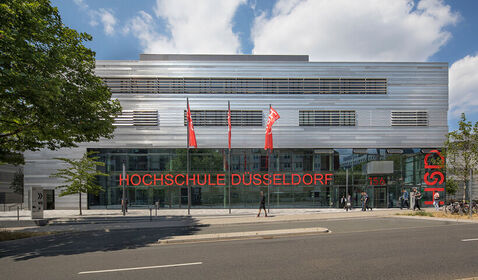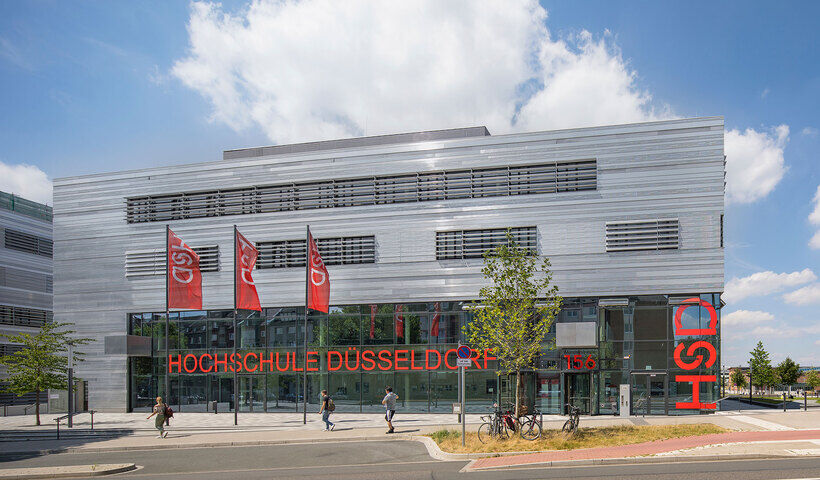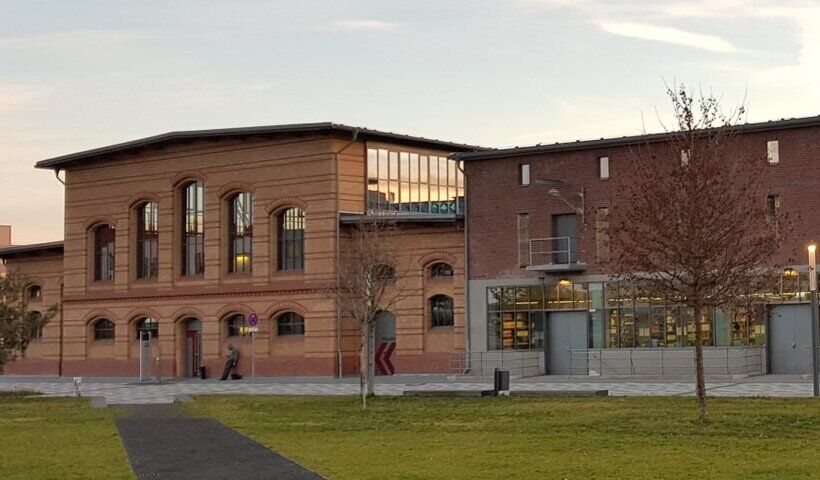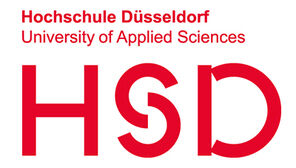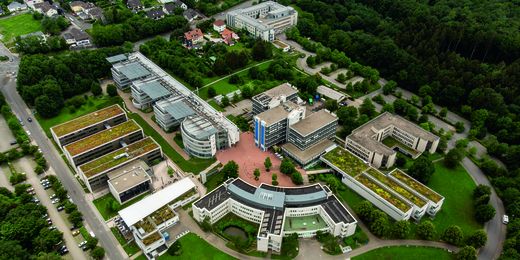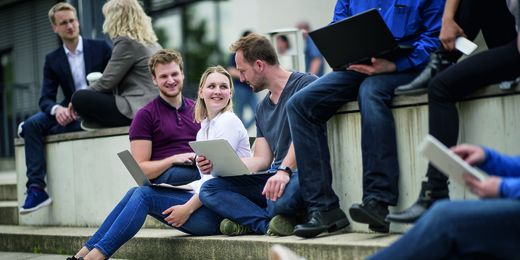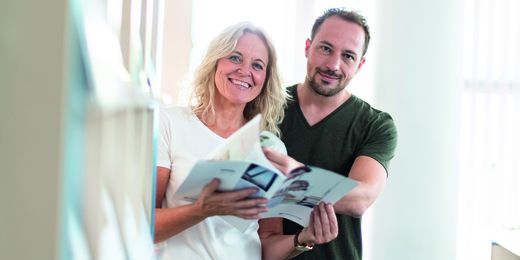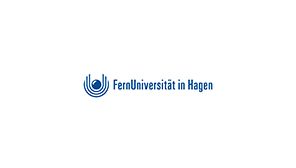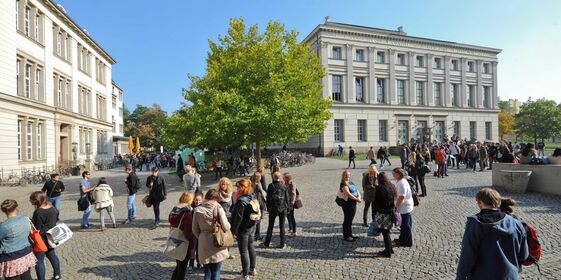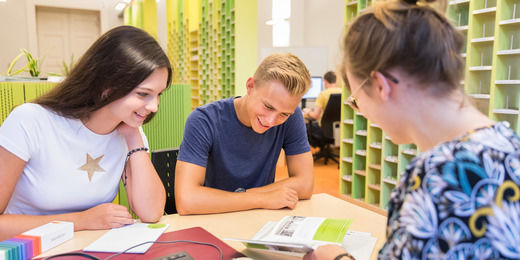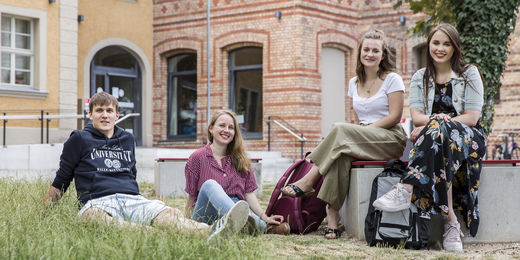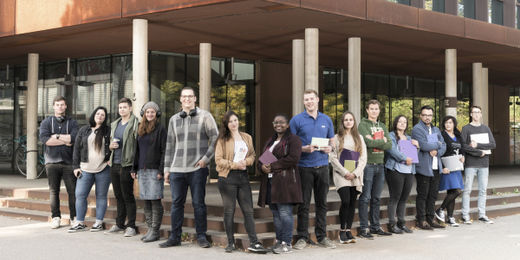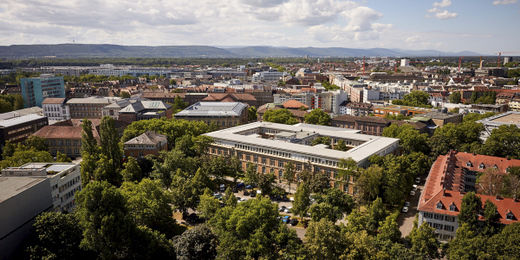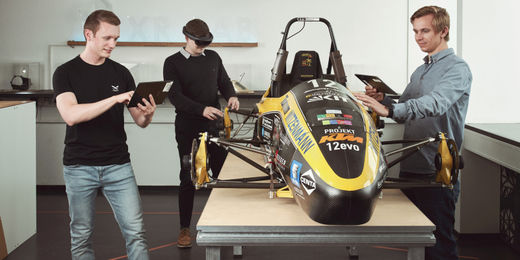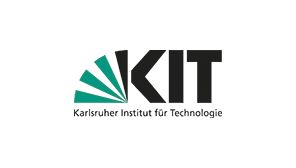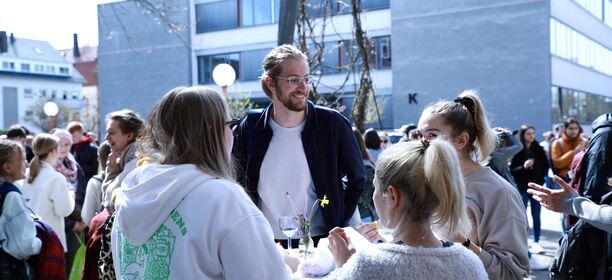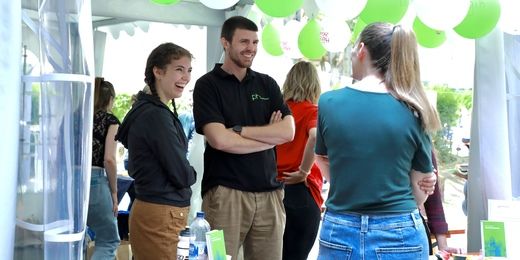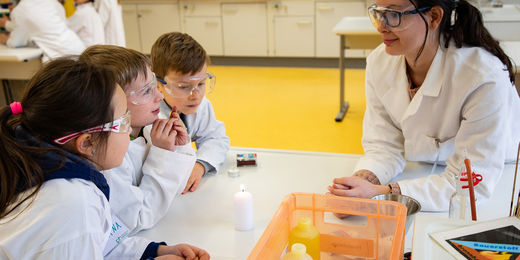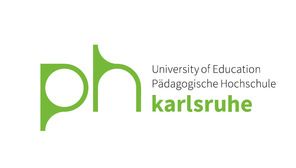Heinrich-Heine-Universität Düsseldorf
- Promotionsrecht: Ja
- Trägerschaft: öffentlich-rechtlich
- 1965 gegründet
- 29.218 Studierende
Universitätsstraße 1
40225 Düsseldorf
Tel: 0211 81-11
Fax: 0211 342229
Hochschule im CHE-Ranking abschneiden.
Die Heinrich-Heine-Universität Düsseldorf gehört zu den Universitäten.
Ja, du kannst an der Heinrich-Heine-Universität Düsseldorf promovieren.
Die Heinrich-Heine-Universität Düsseldorf ist eine öffentlich-rechtliche Hochschule. Es gibt staatliche und staatlich anerkannte Hochschulen, die meist in Universitäten, Fachhochschulen (international: University of Applied Sciences) und Kunst- sowie Musikhochschulen unterteilt werden. Der überwiegende Teil der Hochschulen wird vom Staat finanziert und befindet sich daher in staatlicher Trägerschaft. Dort fallen in der Regel nur geringe Semesterbeiträge an. An den privaten Hochschulen hingegen, die sich über private Trägerschaften finanzieren, können wesentlich höhere Studiengebühren anfallen. Einen Weg, die finanziellen Hürden dieser Hochschulen zu umgehen, können Stipendien darstellen.
Es gibt außerdem Hochschulen, die von der protestantischen oder katholischen Kirche betrieben werden.
Die Heinrich-Heine-Universität Düsseldorf wurde im Jahr 1965 gegründet.
Insgesamt gibt es 29218 Studierende an der Heinrich-Heine-Universität Düsseldorf.
Standort dieser Hochschule ist Düsseldorf.
Hier findest du die Fristen und Termine für deine Bewerbung:
- Vorlesungszeit:
-
07.10.2024 - 31.01.2025
- Studienanfänger:
-
02.05.2024 - 04.10.2024
- Hochschulwechsler:
-
02.05.2024 - 04.10.2024
- International Studierende aus der Europäischen Union:
-
02.05.2024 - 04.10.2024
- International Studierende aus Staaten, die nicht Mitglied der EU sind:
-
02.05.2024 - 04.10.2024
- Studienanfänger:
-
02.05.2024 - 15.07.2024
- Hochschulwechsler:
-
01.07.2024 - 15.09.2024
- International Studierende aus der Europäischen Union:
-
02.05.2024 - 15.07.2024
- International Studierende aus Staaten, die nicht Mitglied der EU sind:
-
02.05.2024 - 15.07.2024
- Studienanfänger:
-
02.05.2024 - 04.10.2024
- Hochschulwechsler:
-
02.05.2024 - 04.10.2024
- International Studierende aus der Europäischen Union:
-
02.05.2024 - 04.10.2024
- International Studierende aus Staaten, die nicht Mitglied der EU sind:
-
02.05.2024 - 04.10.2024
- Studienanfänger:
-
02.05.2024 - 15.07.2024
- Hochschulwechsler:
-
01.07.2024 - 15.09.2024
- International Studierende aus der Europäischen Union:
-
02.05.2024 - 15.07.2024
- International Studierende aus Staaten, die nicht Mitglied der EU sind:
-
02.05.2024 - 15.07.2024
- Vorlesungszeit:
-
08.04.2024 - 19.07.2024
- Studienanfänger:
-
Die Frist ist abgelaufen
- Hochschulwechsler:
-
Die Frist ist abgelaufen
- International Studierende aus der Europäischen Union:
-
Die Frist ist abgelaufen
- International Studierende aus Staaten, die nicht Mitglied der EU sind:
-
Die Frist ist abgelaufen
- Studienanfänger:
-
Bis 15.01.2025
- Hochschulwechsler:
-
Bis 15.03.2025
- International Studierende aus der Europäischen Union:
-
Bis 15.01.2025
- International Studierende aus Staaten, die nicht Mitglied der EU sind:
-
Bis 15.01.2025
- Studienanfänger:
-
Bis 15.01.2025
- Hochschulwechsler:
-
Bis 15.03.2025
- International Studierende aus der Europäischen Union:
-
Bis 15.01.2025
- International Studierende aus Staaten, die nicht Mitglied der EU sind:
-
Bis 15.01.2025
- Vorlesungszeit:
-
07.10.2024 - 31.01.2025
- Studienanfänger:
-
02.05.2024 - 04.10.2024
- Hochschulwechsler:
-
02.05.2024 - 04.10.2024
- International Studierende aus der Europäischen Union:
-
02.05.2024 - 04.10.2024
- International Studierende aus Staaten, die nicht Mitglied der EU sind:
-
02.05.2024 - 04.10.2024
- Studienanfänger:
-
02.05.2024 - 15.07.2024
- Hochschulwechsler:
-
01.07.2024 - 15.09.2024
- International Studierende aus der Europäischen Union:
-
02.05.2024 - 15.07.2024
- International Studierende aus Staaten, die nicht Mitglied der EU sind:
-
02.05.2024 - 15.07.2024
- Studienanfänger:
-
02.05.2024 - 04.10.2024
- Hochschulwechsler:
-
02.05.2024 - 04.10.2024
- International Studierende aus der Europäischen Union:
-
02.05.2024 - 04.10.2024
- International Studierende aus Staaten, die nicht Mitglied der EU sind:
-
02.05.2024 - 04.10.2024
- Studienanfänger:
-
02.05.2024 - 15.07.2024
- Hochschulwechsler:
-
01.07.2024 - 15.09.2024
- International Studierende aus der Europäischen Union:
-
02.05.2024 - 15.07.2024
- International Studierende aus Staaten, die nicht Mitglied der EU sind:
-
02.05.2024 - 15.07.2024
- Vorlesungszeit:
-
08.04.2024 - 19.07.2024
- Studienanfänger:
-
Die Frist ist abgelaufen
- Hochschulwechsler:
-
Die Frist ist abgelaufen
- International Studierende aus der Europäischen Union:
-
Die Frist ist abgelaufen
- International Studierende aus Staaten, die nicht Mitglied der EU sind:
-
Die Frist ist abgelaufen
- Studienanfänger:
-
Bis 15.01.2025
- Hochschulwechsler:
-
Bis 15.03.2025
- International Studierende aus der Europäischen Union:
-
Bis 15.01.2025
- International Studierende aus Staaten, die nicht Mitglied der EU sind:
-
Bis 15.01.2025
- Studienanfänger:
-
Bis 15.01.2025
- Hochschulwechsler:
-
Bis 15.03.2025
- International Studierende aus der Europäischen Union:
-
Bis 15.01.2025
- International Studierende aus Staaten, die nicht Mitglied der EU sind:
-
Bis 15.01.2025


